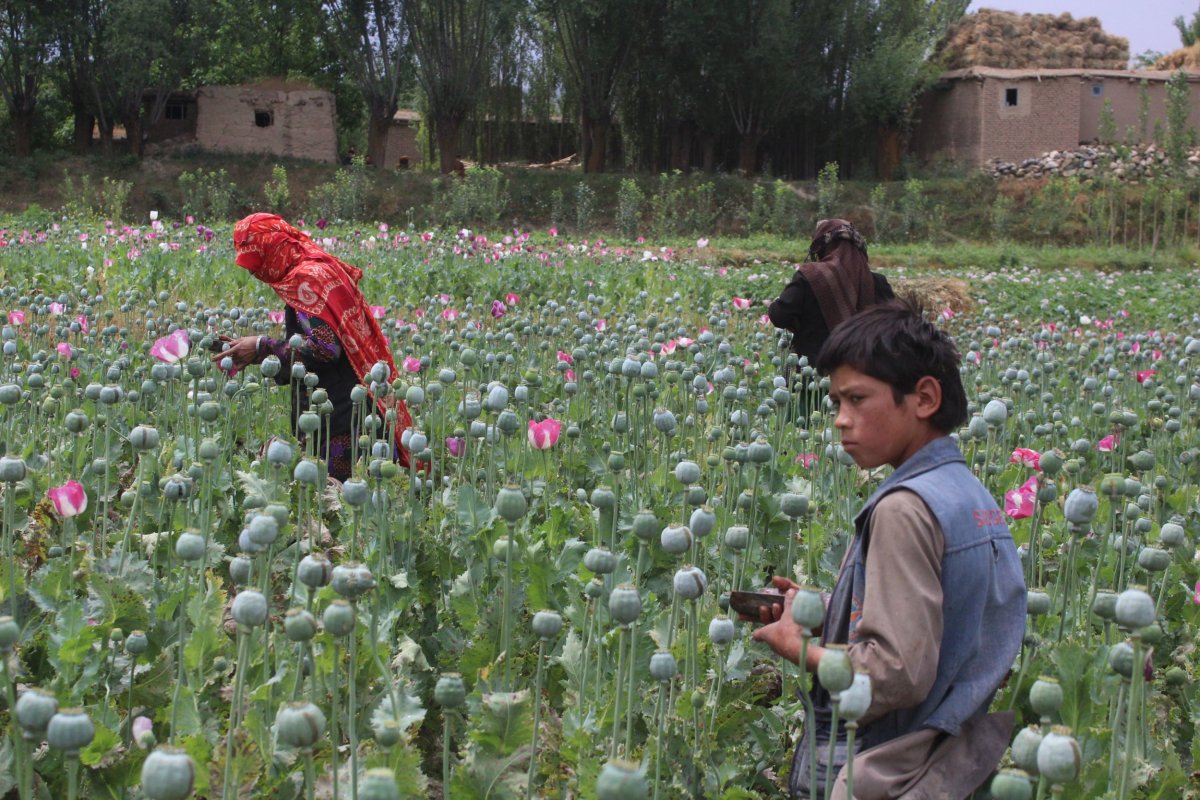
Opium production in Afghanistan is higher than ever as the Taliban continues to gain territory and grow stronger, a new report from the United Nations and Afghan government shows.
Meanwhile, President Donald Trump has given little to no attention to combatting the Afghan opium trade. When he announced his new strategy for Afghanistan in late August, for example, he didn't mention the topic once. As part of this strategy, Trump has increased the number of U.S. troops in Afghanistan by roughly 4,000. But the task of going after the opium industry has been left to local police forces, who are often said to be corrupt and complicit in the trade.
The hands-off approach seems to have translated into a massive increase in opium production and more potential funds for the Taliban.
Compared to last year, opium production in Afghanistan has increased by 87 percent to a record level of 9,000 metric tons in 2017, according to the U.N. report. The area under opium poppy cultivation has increased to a record 810,488 acres in 2017, a 63 percent jump from the 496,671 acres under cultivation in 2016.
87% ↗️ in opium production in #Afghanistan will drive drug abuse, increased dependency on illicit economy and rising levels of corruption. pic.twitter.com/ULUPVE18hq
— UN Office on Drugs & Crime (@UNODC) November 15, 2017
"These frightening figures should give considerable pause for reflection on whether the calculus on the illicit drugs flowing from Afghanistan adds up to a workable and achievable solution. I once again urge the international community to revisit its engagement with Afghanistan, and to acknowledge that fresh assessments and policy revisions may be necessary," Yury Fedotov, the executive director of the United Nations Office on Drugs and Crime, said in a statement.
"The increase is likely to be translated into multiple challenges for Afghanistan, its neighbors, and globally. In Afghanistan, already suffering from the opium produced within its borders, the increases will drive drug abuse, an increased dependency on the illicit economy, and rising levels of corruption," Fedotov added.
Afghanistan is the world's top cultivator of opium poppy, the substance used to produce opium and heroin, and it produces 85 percent of all opium worldwide. The Taliban controls much of the territory where the poppy is cultivated and opium is distributed, and it taxes and provides security for producers and smugglers. The money helps fuel the Taliban's war against the Afghan government, the U.S. and its allies. In 2016, the opium economy in Afghanistan grew to roughly $3 billion, according to the United Nations.
The Taliban now controls 13 percent of the country's districts and is fighting for more territory. About 43 percent of Afghanistan's districts are either under Taliban control or being contested, according to SIGAR, a U.S. watchdog agency.

The U.S. Army Special Forces advise one of the entities assigned to go after the trade, known as the National Interdiction Unit, but these efforts evidently have not prevented the Afghan opium industry from growing. Since 2002, the U.S. has spent $8.5 billion on counter-narcotic operations in Afghanistan, with little to show for it.
The U.S. now has roughly 15,000 troops in Afghanistan and another thousand could join next year as the War on Terror begins its seventeenth year. In 2017 thus far, more than a dozen U.S. soldiers have been killed in the country as the Taliban becomes increasingly aggressive and bold. ISIS also has a foothold Afghanistan and recently staged an attack in the capital city of Kabul.
Uncommon Knowledge
Newsweek is committed to challenging conventional wisdom and finding connections in the search for common ground.
Newsweek is committed to challenging conventional wisdom and finding connections in the search for common ground.
About the writer
To read how Newsweek uses AI as a newsroom tool, Click here.








